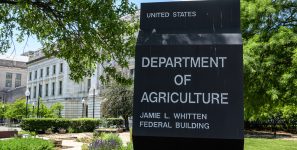WTO Chief Warns of Rising Protectionism and Its Threats to Global Trade
Global trade is facing significant challenges, according to Dr. Ngozi Okonjo-Iweala, Director General of the World Trade Organization (WTO). “We are seeing increasing protectionism, some undermining of the WTO rules, and some of this is leading to fragmentation,” she told the BBC, highlighting that global trade is crucial for economic resilience and growth.
Read also: WTO’s Okonjo-Iweala Highlights Vital Role of Aid for Trade in Empowering Developing Economies
Recent examples of these challenges include the European Union imposing provisional tariffs of up to 37.4% on imports of Chinese electric vehicles (EVs) and the United States imposing 100% tariffs on Chinese EVs in May. Both regions accuse China of unfairly subsidizing its EV sector, threatening Western jobs by enabling low-priced exports. Additionally, President Biden has raised import taxes on other Chinese products, including EV batteries and solar panel cells, while the U.S. invests heavily in green technology through the Inflation Reduction Act to reduce reliance on Chinese imports.
EU Trade Commissioner Valdis Dombrovskis emphasized the need for fair competition: “We welcome imports, we welcome competition, but this competition must be fair.” The WTO noted a 1.2% decline in global trade volume last year, attributing it to higher inflation and interest rates but forecasting a recovery this year.
IMF’s First Deputy Managing Director Gita Gopinath described the current global trade relations as unprecedented since the Cold War, driven by economic and national security concerns. This shift is affecting countries like Peru, Ghana, and Vietnam, which face pressures to choose between Western powers and the China-Russia axis.
Dr. Okonjo-Iweala warned that trade fragmentation is becoming evident, with trade growing faster among like-minded countries than across different blocs, which could cost the global economy 5-7% in lost output, according to WTO and IMF estimates.
The EU’s tariffs on Chinese EVs follow a surge in their exports to Europe, with exports increasing from $1.6 billion in 2020 to $11.5 billion last year. Chinese EV makers like BYD, Geely, and SAIC have benefited from substantial government support. Jens Eskelund, president of the European Union Chamber of Commerce in China, noted that Chinese EV companies are now competitive without government help and suggested that the introduction of tariffs indicates an imbalance.
Eskelund also highlighted a significant decline in the volume of EU goods sold to China since 2017, despite China’s economic growth, citing restrictive market access and security regulations in China. The EU is working to reduce its economic dependence on China, focusing on “de-risking” rather than “de-coupling” its relations.
While the EU and China prepare for talks on potential EV tariffs, China is considering retaliatory measures on EU goods. Additionally, global trade faces other barriers, such as reduced ship traffic through the Panama Canal due to low rainfall and disruptions in the Suez Canal caused by attacks from Houthi rebels.
Rolf Habben Jansen, CEO of German shipping giant Hapag-Lloyd, reported a 30-40% increase in shipping rates due to these disruptions, potentially raising consumer prices and pushing up inflation. Despite these challenges, Dr. Okonjo-Iweala remains hopeful about trade resilience and the WTO’s role in resolving disputes.
She also acknowledged the need to update WTO rules to address climate change, a threat not anticipated when the current rules were established decades ago. Regarding tariffs, she cautioned against repeating the retaliatory tariffs of the 1930s, which led to widespread economic decline.
Dr. Okonjo-Iweala concluded with a call for cooperation and adaptation to ensure global trade continues to support economic resilience and growth in a changing world.





Leave a Reply